We’ve given you our take on how brands need to respond to the post-truth era in the full TRUTHFUL CONSUMERISM Trend Briefing. In short: hold on to five core, universal human truths that will remain relevant, even in this time of polarization and populism.
But as always, when researching this topic we turned to members of our Insight Network (tw:in) for on-the-ground observations. Taken together, these brief glimpses of consumerism around the world allow us – and more importantly you – to take the global pulse of innovation.
Use their insights to guide your thinking around TRUTHFUL CONSUMERISM and inspire a winning response!
Website connects people with opposing political opinions
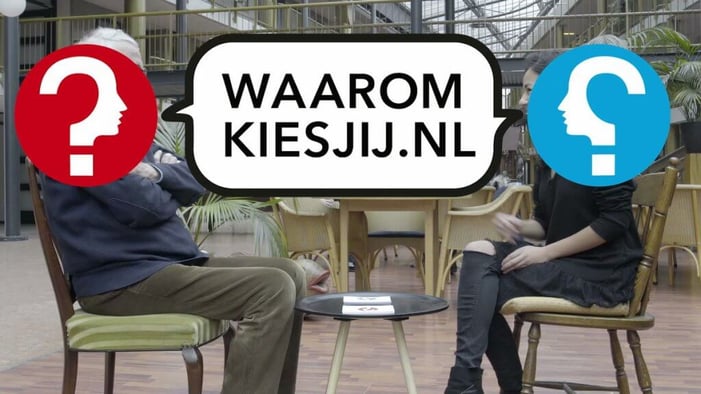
Waarom Kies Jij (meaning ‘Why Choose You’) is an online platform that launched in February 2017 during the Dutch election. The platform connected people via video chat to someone with an opposing political viewpoint, Chat Roulette-style. The purpose of the service is to help users experience different perspectives, something that’s increasingly difficult to do on social media.
Xander comments:
“People are more and more aware that their social networks are acting as ‘information bubbles’, and that they are only getting one side of the news. During the recent Dutch elections, there was a lot of discussion about the polarization of society and the rise of right wing populism. The Waarom Kies Jij platform facilitated over 35,000 discussions and gained a lot of media attention.“
Loans provider admits that it earns profit from borrowers’ interests
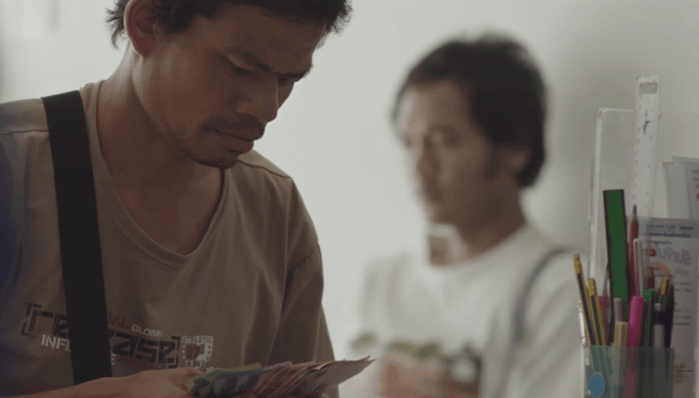
December 2016 saw Ngern Tid Lor launch a surprising video campaign encouraging people to look after their money. In the ad ‘New Life’, the Thailand-based loans provider admits that it earns interest from people using the service, and urges customers to spend their loan wisely, in order to become debt-free and not need financial support from the company in the future.
Poomnuree comments:
“With household debt totaling approximately 80% of GDP and a significant proportion coming from loan sharks, it’s imperative for Thais to manage their expenditures and loans successfully. Against this worrying background, Ngern Tid Lor’s rebranding strategy feels fresh and relevant. People appreciated the campaign’s honest admission and sincere tone that put the customer first, even ahead of the company.”
Guatemala-based organization promotes transparency in constitutional reforms
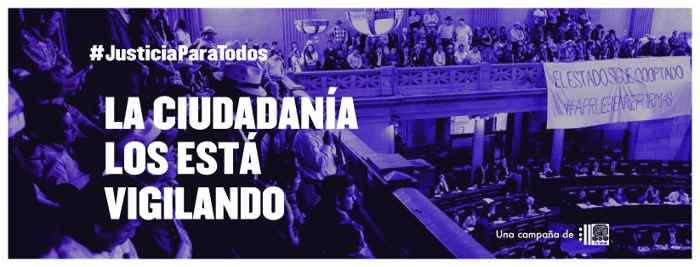
In January 2017, Guatemala-based Justicia Para Todos launched a campaign promoting transparency and justice in the country. The aim of the organization is to encourage positive constitutional reform and eradicate corruption in the government by educating members of the public. Meetings and press conferences held by congressmen are livestreamed on its Facebook page, and reports claim to be focused on providing accurate, unbiased and accessible information about the constitutional reform process.
Ximena comments:
“The constitutional reforms in Guatemala are well underway and Justicia Para Todos seek to inform the masses and ensure transparency. Many Guatemalans feel that the reforms have the potential to reduce rampant corruption, and improve the rights of indigenous communities for a better and more inclusive Guatemala. The campaign focuses on using social media to avoid biases perceived in different media. It also offers digestible and easy to comprehend information so that people can follow the process more easily and understand what are the impacts of the proposed reforms.”
Digital project provides young people across Africa with IT skills
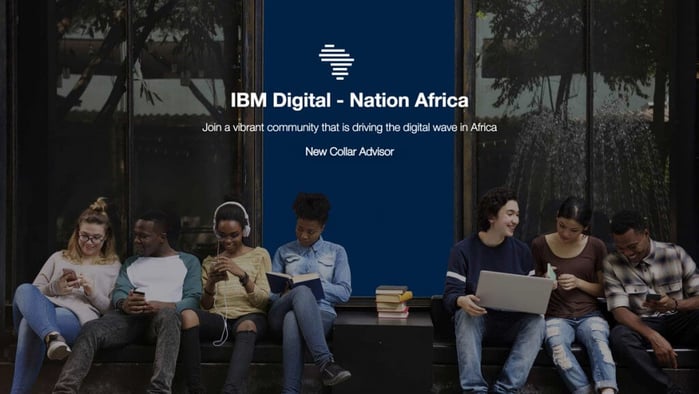
Announced in February 2017, IBM Digital – Nation Africa is a project providing 25 million young people across Africa with digital skills. The USD 70 million project will roll out over five years, with the aim of boosting innovation and upskilling African youth. Providing tuition via a cloud-based platform, the initiative includes basic computer literacy skills, as well as more advanced content on social media, business innovation and digital privacy.
Emeka comments:
“IBM’s move comes at a critical time for Nigeria and Africa, where the tech space is growing rapidly and young Africans are becoming hungrier for technical skills training. Unfortunately, institutions are failing and here, IBM manages to step in the gap and make a real difference. With Africans becoming more appreciative and proud supporters of brands who make a tangible impact in their lives, the relationship is mutually beneficial.”
On-demand delivery service partners with nail polish brand to support women in business
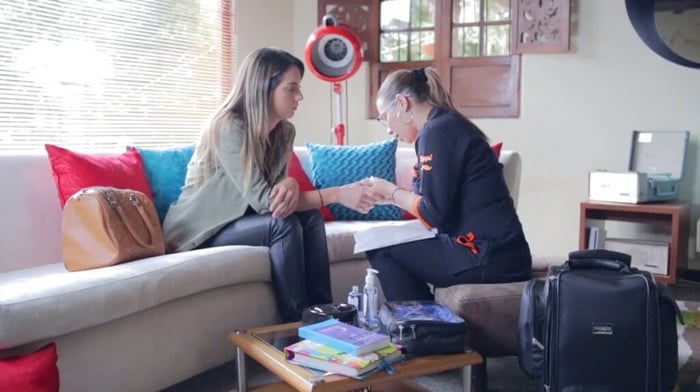
In February 2017, Colombia-based Rappi and beauty brand Masglo partnered to offer on-demand manicurist services to customers. The service is available seven days a week and manicurists are available within 30 minutes. Announcing the initiative, the companies said that the new distribution channel was designed to help manicurists generate extra income. By March 2017, there were 50 manicurists available on the platform, and Masglo launched a new nail polish colour (named ‘Rapid’) to promote the service.
Juliana comments:
“A high percentage of the population in Colombia work in the informal economy, especially women. Many women find informal work as manicurists as the costs of starting are low. The partnership between Rappi and Masglo helps bring this service into the formal economy. This initiative will give these women greater protection from exploitation, more opportunities to improve their wellbeing and realize their aspirations.”
Easily-identifiable house numbers improve access to emergency services
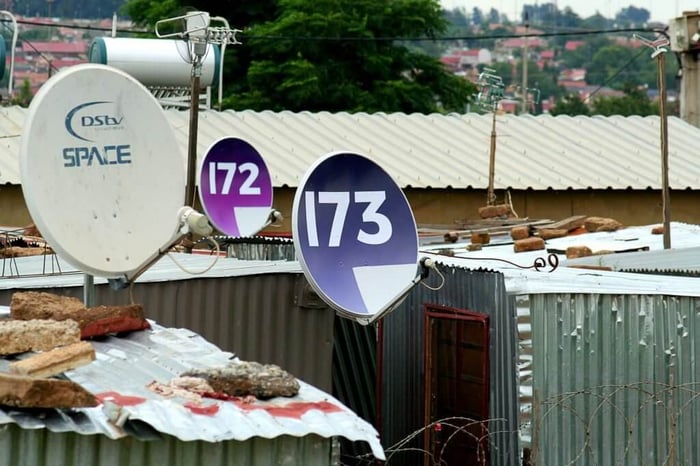
In February 2017, Grey Design launched Satellife: a project that helps paramedics locate people in need of their services. In densely populated areas in South Africa, thousands of residents do not have visible house numbers which makes it difficult for emergency services to reach people in danger. The design company aims to tackle this problem by creating large, multicolored numbers to stick onto satellite dishes that are mounted onto houses.
Nicole comments:
“Satellife Project by Grey Design has the potential to save many people’s lives in densely-populated, informal suburban settlements that are often overlooked when it comes to innovation. And because each home has a satellite dish, this simple concept can be replicated easily in many areas of South Africa, if not beyond. Indeed, the company has now started its effort to roll this out nation-wide.”
Personal care brand creates sustainable solution to make women feel safe
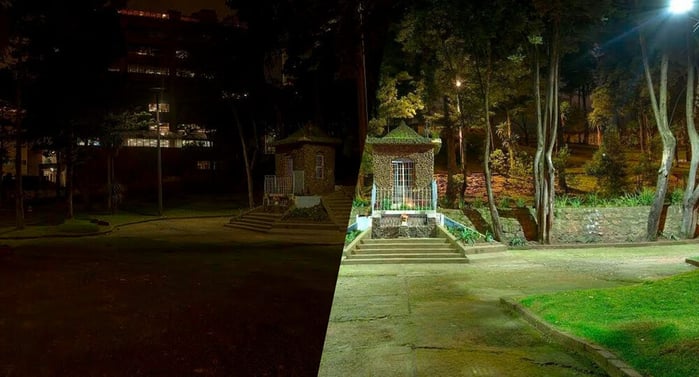
In February 2017, Dove launched a campaign using solar-powered street lamps to make women in Bogotá feel safe. With the support of several government bodies in Colombia, and the use of data obtained by the Observatory of Women and Gender Equality, the personal care brand chose areas around the country’s capital city where violence against women is common. The #AclaraBogotá (meaning ‘Light Up Bogota’) campaign saw Dove install ten self-sustaining lights, aiming to prevent gender-based crimes.
Darío comments:
“In the rest of the world, Dove has campaigned against social and psychological barriers to women’s beauty. In Colombia, the struggle for women is often more basic: a lack of physical security. This campaign helps ensure women’s safety, while also tackling the wider Colombian issues of crime and the impact that has on public spaces.”
University in the Philippines installs gender-neutral restrooms
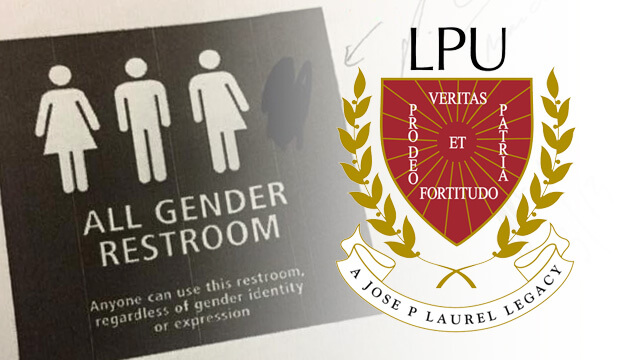
In March 2017, the Lyceum of the Philippines University announced that it would install gender-neutral restrooms on its Manila campus. A student organization announced the news via a Facebook post, which received over 700 likes and 200 shares. The move is part of a wider initiative that promotes gender equality in the college.
Genesis comments:
“This bold decision by The Lyceum of the Philippines University (LPU), shows there’s hope for a more inclusive society. This move comes in the midst of a national discussion on LGBT rights: just last year, the Philippines elected its first transgender politician and there’s currently a bill tabled in the parliament that seeks equal opportunities for the LGBT community. Against this backdrop, LPU’s decision could be an example for other institutions to follow.”
TV ad celebrates difference and tolerance
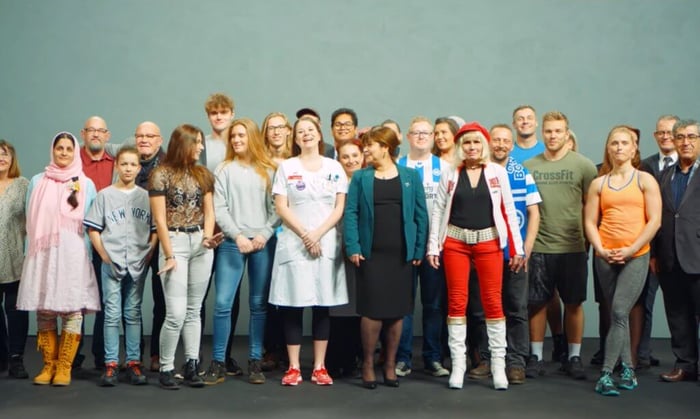
Danish TV station TV2’s Alt Det Vi Deler (‘All That We Share’) commercial went viral after being released online in January 2017. The clip features 80 Danes from different backgrounds and of different ethnicities, who were given 40 questions to consider before filming took place. The clip shows them standing together based on their responses to each individual question – and celebrates the importance of difference and tolerance.
Pia comments:
“Denmark has a reputation for tolerance, but in recent years there have been growing discussions of diversity among social and ethnic groups. Which is why it was so encouraging to see a national TV channel show very powerfully that often the divisions aren’t as real as we imagine, and we have much in common with those that are ‘different’. The fact that the ad went viral showed that this message resonate widely, both in Denmark and globally.”
Budget airline assists underprivileged Delhi residents

January 2017 saw IndiGo launch its Aakhri Aahuti humanitarian service, in partnership with the Delhi Police. The Indian budget airline is offering to ferry the bodies of individuals from the North East of the country back home, should they die in Delhi. The city’s police have to authorize the transport, with the service being offered free of charge to any eligible underprivileged individuals.
Pooja comments:
“The Aakhri Aahuti initiative from Indigo is a powerful signal of inclusiveness and understanding, as the North-East migrant population often work in the informal economy and struggle against racial prejudice in Delhi. At a time when India’s politics are becoming more and more polarized, this is an action that shows their compassion to families at a very important moment.”
Cell phone operator’s app empowers Syrian refugees
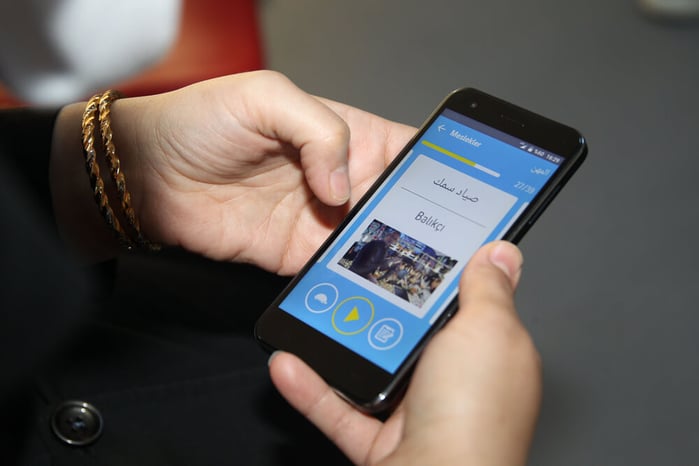
Merhaba Umut (‘Hello Hope’), developed by Turkey-based cellphone operator Turkcell, teaches Syrian refugees how to read, write and speak basic Turkish words and phrases. The app helps users to locate service points and provides translation guidance; an Arabic helpline can be accessed for additional support. As of September 2016, more than 1.2 million Syrian refugees had used the service. Merhaba Umut is available on all mobile network providers across the country.
Ozgur comments:
“Currently, there are over three million Syrian refugees in Turkey and, with the language barrier, many are finding it difficult to integrate into Turkish society. And the situation is not improving: the UNCHR has reported increasing poverty rates amongst the refugees, while only about 40% of the children are in school. In this environment, Turkcell’s app offers timely help to these refugees and shows that digital solutions can have a powerful real-world impact.”
Beer brand’s poster campaign recognizes sexist past

In March 2017, Skol commissioned six female artists to create posters based on its archived sexist advertising. Recognizing that posters featuring semi-clad women were both sexist and part of its past, the Brazilian beer brand’s commission resulted in six new posters inspired by old ads, all created by feminist artists.
Paula comments:
“Brazilian women have always been synonymous with desire, curves, summer and sexy. With their often extremely sexist content, beer brand ads have long promoted the association between the pleasure of drinking and men’s sexual pleasure. This has contributed to the objectification of women, gender inequality, violence against women and exclusive beauty standards. In Brazil, people are now increasingly speaking out against gender inequality, empowered by digital platforms that enable them to do so, and an understanding that profit above ethics is no longer acceptable. Skol understands this, and has rebranded itself to promote this cause.”
Next: we need you!
Did you enjoy reading these innovations, but think you’ve spotted an even better example from your region? Or are you interested in spreading the word about the latest consumer trends to your network? Or could you become one of TrendWatching’s core local contributors?
Join TrendWatching’s Insight Network and get exclusive previews of TrendWatching’s upcoming content, have your insights featured in our publications, and connect with fellow trend-savvy professionals.
Subscribe
Never miss a TrendWatching Quarterly Briefing!
Related
Truthful Consumerism
The future of consumerism and brand strategy in a world of populism, polarization and post-truth!
Regional take
Truthful Consumerism in Asia
Post-truth, Asia-style. Why aspiration and empowerment will be two truths that successful Asian brands will focus on.
Regional take
Truthful Consumerism in Latin America
Transparency and empowerment: two big, human truths for Latin innovators to run with in the post-truth era.
Regional take
Truthful Consumerism in Africa
Empowerment and tolerance: two truths for African brands to run with.
NEXT
The Bigger Picture
Learn more about our Trend-Driven Innovation methodology & how the five truths fit in.







